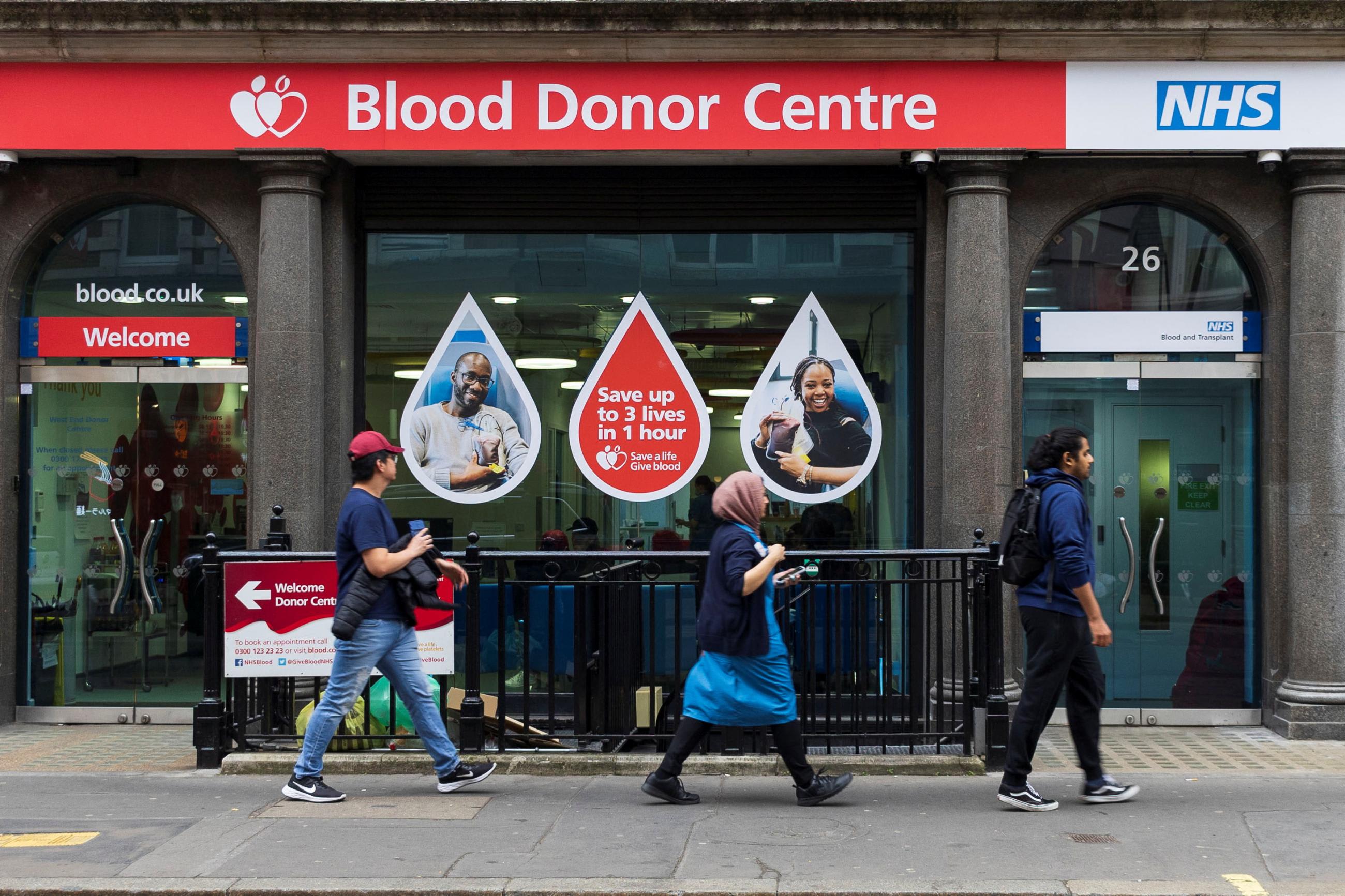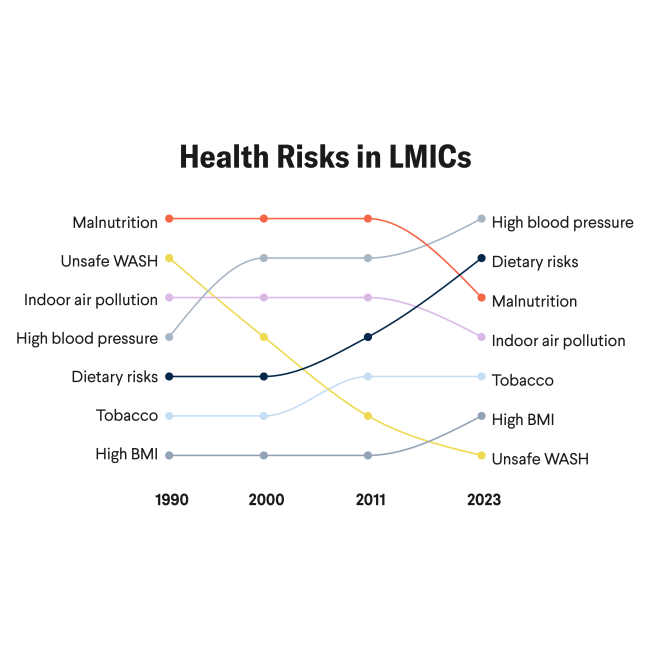The United Kingdom's National Health Service (NHS) has long been admired across the world as an effective and efficient health system. Such is its reputation that it was celebrated and showcased in the Opening Ceremony of the London 2008 Olympics, and within the country it has been deeply cherished. Today, however, the NHS is in crisis. Instead of being a source of pride, it is, as commentators describe it, "broken" and "failing." Waiting times have exploded. The quality of many aspects of care has deteriorated. Thousands of committed health professionals are resigning from their jobs or going on strike. Instead of mitigating social inequality, the health system threatens to exacerbate it. How has this come to be?
One reason is a history of chronic underfunding coupled with an increased demand for health care from an aging population and the rising cost of medicines and other technologies. Another factor is a decades-long erosion of the founding principles of the NHS and an effort to replace them with new ones. The health system, although still described as the NHS, is quite different from the one first established after World War II. Core to this transformation has been the removal of universality as a defining feature of the NHS, and its replacement with markets, competition, and individual choice.
Instead of mitigating social inequality, the health system threatens to exacerbate it
Universality in this context means being singular, inclusive, and all-encompassing at a national level. It is clear in how the NHS was financed by a single, national pool of public funds that removed the need for private financing or out-of-pocket payments. Moreover, this single pool of public finance represented the bulk of total health expenditure (making what is sometimes referred to as a single-payer system) and was used to bring the vast majority of health-care providers under a single integrated umbrella. Primary, secondary, and tertiary care providers were thus funded, organized, and managed as different parts of a single coherent system of health-care providers for the entire population.
These aspects of universality were central to another founding principle of the NHS: equity. As a universal system of health care, people of all socioeconomic classes accessed the same quality of care and did so on the basis of need. The national pool of finance also allowed for maximum risk-sharing between both the young and healthy and the elderly and unwell. Further, because financing was derived from a progressive and compulsory tax system, the NHS effectively required different income groups to cross-subsidize one another. A universal workforce also meant that income disparities across the workforce were relatively small.
Neoliberal reforms first introduced in the 1980s changed all this. Proponents of change argued that the NHS was rigid and financially unsustainable and that marketization, privatization, and competition would spur efficiency, drive up innovation and quality, attract private investment, and give patients (increasingly known as consumers or clients) more choice. To make this happen, commitment to universality and equity had to be dropped.

Reforms to marketize the health system broke up the unified and coordinated system of NHS providers and converted it into a pluralistic landscape of competing providers, including private hospitals and clinics owned by large multinational corporations.
This task was not easy: creating space and opportunities for the private sector required constraining the public sector and redirecting public funds toward private providers. The largest for-profit companies have come to depend on the taxpayer for as much as three-quarters of their income. When COVID-19 severely reduced the flow of patients to private hospitals, public funds were used to cover the operating costs, including interest payments on their debt, salaries, supplies, rent, and overhead. In 2021, for the first time, the for-profit sector delivered more hip and knee operations than the public sector did.
Liberalization of the health system also meant eroding the single-payer system and encouraging more private financing. Although private insurance premiums are still a small proportion of total health expenditure, out-of-pocket payments are rising. More fundamentally, the health system is awash with billions of pounds of private capital invested in for-profit health care. Inevitably, the rise in share of private finance capital and private provision has led to an increasingly segmented, two-tier system in which wealthier patients pay for quicker and more convenient health care in the private sector even as the public sector deteriorates.
These reforms have also led to a de-universalization of the single national workforce and the emergence of market-driven patterns of employment and remuneration. Disparities in incomes are growing among clinicians and the accumulating managers, accountants, and lawyers employed to administer the marketized health system. Investors and shareholders are drawing income out of the system, too.
The immediate causes of large-scale strikes by hundreds of thousands of health workers have been sharp pay cuts, growing workloads, and a collapse in morale and motivation—and anger. The anger is about the transformation of a universal public service into one in which some make private fortunes but most health-care workers and patients experience worsening terms and conditions.
Although people may enjoy greater choice for some forms of health care, most people can't afford choice
But what about the promised improvements in quality, efficiency, and choice? Although marketization and privatization enable certain individual facilities to improve quality and efficiency in providing certain services to certain individuals, the current state of disrepair and despair clearly indicates that the health system as a whole has deteriorated. Some people may enjoy greater choice for some forms of health care, but most people can't afford choice, and it's not even their priority. They don't want to have to shop for health care; they simply want an accessible, local health service that they can trust.
Health systems are more than mechanisms for the delivery of goods and services. They are also social systems that embody normative values, define the contract between state and citizens, and shape the way people relate to one another. They can mitigate social inequality or they can aggravate it. Indeed, the sacrifice of universality at the altar of neoliberal ideology draws attention to these broader social functions of health systems. The story of the demise of the NHS also has implications for the way other countries are working toward the goal of universal health coverage (UHC).
Universality and equity ought to be at the heart of efforts to achieve UHC, but they aren't. The World Health Organization defines UHC as the condition in which all people have access to "the full range of quality health services they need, when and where they need them" and the United Nations' indicator for monitoring progress toward UHC is "coverage of essential health services." As far as these institutions are concerned, UHC may be achieved by merely extending access to a minimum or basic package of selected services — even if inequity worsens, or the overall functioning of the health system deteriorates.
This can't be right. Keeping the principle of universality as part of the conversation about UHC is crucial for an equitable, healthy world.













